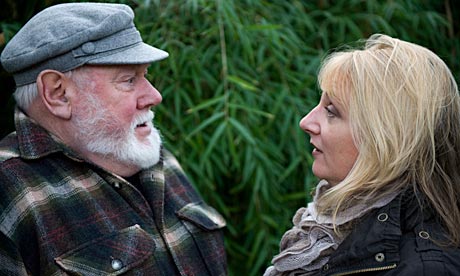
It was while she was sitting in a succession of health centre waiting rooms with one or other of her parents that Donna Rutherford first got the idea for an artistic collaboration with the NHS.
Struck by the changing relationship between parent and child as both age, Rutherford, a 41-year-old Glasgow artist, developed Kin, an audio project based around interviews with mothers, fathers and their adult children, and broadcast via listening posts set up in health centres and hospitals around Glasgow.
Rutherford conducted the interviews with the help of volunteers and edited them into a 37-minute programme that touches on issues of loss, guilt, love and memory as both generations find their roles and relationships beginning to shift. The conversations are often humorous, and at times heartbreaking. A father recalling his daughter dancing on his feet, a mother's admission that she hopes to "erase" herself before her death so the impact on those she loves may be lessened.
"There were quite fixed questions for each person: ageing, change, reminiscence," says Rutherford. "It was the unique language of relationships and throughout it all there were key words that kept cropping up: independence, patience, guilt. So these became key issues to work around in the edit."
When the programme was completed, Rutherford, in collaboration with NHS Greater Glasgow and Clyde (NHSGGC), set up the listening posts: small wooden lecterns with two headsets and a visitors' book where listeners can write their thoughts.
"These are all familiar thoughts and feelings," writes one listener. "It is a comfort to know they are shared."
The idea, says Rutherford, is not to cajole people into listening, but to let them dip in and out and take from the programme what they like.
"It was giving people the platform to have these conversations," says Rutherford. "It is very much about the unspoken and unsaid … The idea for waiting rooms was appreciating that health staff don't have the time to dwell on the intricacies of that particular family dynamic after a diagnosis has been given."
The project, which has been in place since November, has been well received, according to Jackie Sands, arts and health co-ordinator for NHSGGC. The health board is the only one in Scotland with someone like her in post, she adds.
"There is a real role for the arts in these in-between spaces," says Sands. "This was one way of showing that. Healthcare has got very technological and clinical. This reminds us that we are humans and not just a number or name on the list."

